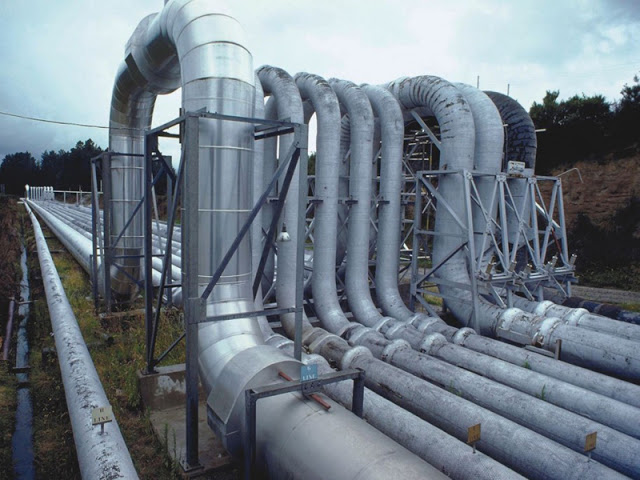Niger Republic has commenced works on the construction of a 1,980km, 20-inch-diameter pipeline to carry crude oil from the Agadem Rift Basin (ARB) fields to the Republic of Benin’s Atlantic oil terminal in Sèmè-Kraké port.
The construction is being handled by the China National Petroleum Corporation (CNPC), now known as China Petroleum Pipeline Engineering Co. Ltd. (CPP).
The pipeline construction had been held up for months by the coronavirus pandemic.
It is expected to increase Niger’s oil production from the current 20,000 barrels a day to 120,000 barrels a day after the completion of the pipeline in 2024.
Known as the Niger-Benin Export Pipeline (NBEP), the pipeline, valued at $7 billion, which was launched by the Niger and Benin governments last month, will run from Agadem in Niger to the Republic of Benin.
The crude oil export pipeline project, which is now planned to run from Niger Republic to Port Seme on the Atlantic coast in Benin, was originally planned with the Nigerian government.
The China National Petroleum Corporation (CNPC) now known as China Petroleum Pipeline Engineering Co., Ltd. (CPP) has been trying since 2006 to build a pipeline linking oil fields in Niger to the coast.
According to sources, outcry by some Nigerians about the pipeline project may have led to the decision by the government of Nigeria to decline the deal with China.
The pipeline would enable the transportation of all the proven crude reserves in Niger for export in order to earn foreign exchange for the Niger government and the promoters.
CNPC had in 2006 offered $102 million at the auction organised by the Bureau for Public Enterprises (BPE) to privatise the Kaduna Refinery, but Nigeria declined.
The source revealed that the CNCP had planned to buy the Kaduna Refinery, rehabilitate it and then construct a pipeline for Niger Republic to supply crude oil for refining to the refinery.
After the failure to secure the plan with Nigeria, the CNCP was said to have moved on to plan the Niger-Chad Oil Pipeline, which would have connected Chad with the Chad-Cameroon Oil Pipeline, but that plan was abandoned, reportedly because of a ‘poor experience with Chadian authorities.
The official explanation given for the project’s cancellation was concerns about attacks by Boko Haram in the Lake Chad area.
After that plan began to unravel, CNPC pursued an alternative plan to route a pipeline to the coast through Benin.
In January 2019, Niger Republic’s minister of petroleum resources and Benin’s minister of water and mines signed a bilateral agreement for the construction of the pipeline, and later in August the CNPC signed a contract with the government of Benin to build and operate the Niger–Benin pipeline.
The 1,982-km, $7 billion pipeline would start from the Agadem oil field in Niger, connect with the CNPC-built refinery at Zinder, Niger, and end at the port of Seme Terminal in Benin, allowing CNPC to export Nigerien oil.
In September 2019, CNPC signed a transportation convention with the two governments and began construction, with Nigerien President Mahamadou Issoufou laying the first stone and giving the project a full-throated endorsement.
In February 2020, CNPC suspended all construction work due to the COVID-19 pandemic. With coronavirus affliction raging in China, CNPC was unable to transfer employees from China, and was worried about the disease spreading among construction workers.
In October 2020, it was reported that CNPC had started detailed designing of the pipeline, and that a consortium of CNPC-related companies had completed the engineering of the onshore section of the project, including 675 kilometres that will run through Benin and 1,275 kilometres through Niger.
Experts believe Nigeria would have benefited immensely from the transaction if it had gone through in the country, in terms of easier access to premium motor spirit for use in the country, as well as the huge opportunity for employment for the nation’s teeming youths. All these benefits will now go to Benin Republic
In his reaction, Adigun Ademola, oil policy analyst with the Facility for Oil Sector Transparency and Reform (FOSTER), said it is a huge loss to the country that has a huge infrastructure gap in the oil and gas industry.
Ademola said, however, that Nigeria may have rejected the deal due to unfavourable contractual terms; nevertheless, the project would have offered great opportunity to optimise industry operations and opportunities.
Source




